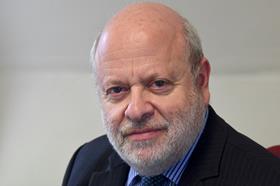
I assume that conference organisers everywhere are in crisis. Although the online changes we have all experienced over the past year have been accelerated by the pandemic, its ebbing tide will probably leave training going in the same direction in which it is now headed.
I have recently been involved in EU-wide lawyer training as a speaker and moderator (this article is not about any aspect of Brexit – EU law is just the example I have to hand).
For instance, I have been part of an EU-funded programme training lawyers from several member states on the EU-wide instruments on procedural rights in criminal proceedings: the right of access to a lawyer; the presumption of innocence and right to be present at a trial; the right to legal aid; and the European Arrest Warrant (elf-fae.eu/crimilaw/).
This was originally planned as in-person training that would last a day and a half in the pre-pandemic world. But nobody can concentrate on Zoom – or whatever other platform is being used (in this case, Canvas) – for that long. After a few hours, we go mad. So the day and a half has been replaced by short sharp bursts. Instead of explanations on one directive after the other throughout the day, the individual rights have been separated, with each handled in a session which is supposed to last an hour. The enthusiasm of the participants has seen it stretch mostly to an hour and a half, but the organisers insist no longer. The sessions take place at the end of the day, when lawyers have been able to put their court appearances and other work mostly behind them. The hour-long sessions are scattered over two weeks.
No one has left their home or office. Yet, because the group of more than 50 lawyers is the same day after day, there is networking. The Canvas platform does not allow the lawyers to see or speak to each other, but the chat box is freely used. The participants are encouraged to mark their presence at the beginning, ensuring a proliferation of ‘Hello from rainy Warsaw’ or ‘Greetings from the sunny Canary Islands’.
But much more importantly, there are many questions and comments. How does pre-trial detention co-exist with the presumption of innocence? How does the presumption of innocence co-exist with widespread press comment, particularly in high-profile cases? Is there anything that can be done about pitiful criminal legal aid rates in many parts of the EU – much, much lower than in the UK – and how does that match up with the right to a fair trial and the right to legal aid?
Because the same people are meeting up every day for an hour, personalities emerge, and comments are freely exchanged about practices in home member states. There may be less socialising than over lunch at an in-person conference, but there is curiously more chatter in the chat box between the participants on the legal topic under discussion.
At in-person conferences a speaker had to make extra effort to ensure that most heads were not bowed over mobile phones, focusing on things other than the topic at hand.
Of course, the organisers in a Canvas online training session have no way of knowing whether a person has left the computer and is sunbathing in a garden in Sicily for the hour of the daily course. But the chat box suggests enthusiastic involvement. There is a separate discussion platform, too, where participants and speakers can engage with each other outside the course itself.
As we know, different platforms offer different opportunities. Another of my recent courses – training trainers from around the EU on anti-money laundering legislation – was due to last a morning. It was held on Zoom so that participants could intervene during the session (https://elf-fae.eu/crimilaw/). They clicked on the ‘raise hand’ symbol, turned on their camera and microphone, and addressed the question directly to the speaker.
Like so many of the pandemic’s changes, none of this is new. It is just an acceleration, and raises the question of why there should be a return to the old times, particularly with courses which last a day or more and require travel. Why should a day be devoted to training, when an hour at the end of the day over several days will do as well (if not better)? And for cross-border courses, or even national ones held in London, the ease of access from home or office is an unbeatable advantage.
The participation rates in last year’s International Bar Association’s annual conference, which was held entirely online, showed how such courses can penetrate parts of the world which the old in-person seminars never reached. But it is not just something affecting international courses. All continuing legal education has changed forever.
Jonathan Goldsmith is Law Society Council member for EU matters and a former secretary general of the Council of Bars and Law Societies of Europe. All views expressed are personal and are not made in his capacity as a Law Society Council member, nor on behalf of the Law Society
































11 Readers' comments